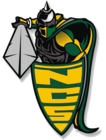English 30-1, 30-2
My focus is you – your future success is important to me. Therefore I will seek to provide a positive classroom environment in which you can learn and create. My efforts will be centered on helping you prepare for your future by developing strong communication skills, exploring life themes and differing perspectives through literature and by aiding you in discovering or clarifying your inner and outer worlds through reading and writing activities.
Expectations and Rules
In these two classes there are only 79 days to cover and learn content and skills that may be pertinent to your future or the future of others. Please be respectful of the teacher, others in the class and your own future throughout the 79 days in the classroom. Attend classes!
There will be no personal technology or electronics allowed in the classroom. Turn it off and put it away or risk losing it for the day if I see it or hear it. You are more important than any device!
No food and no drinks, other than water, will be allowed. You are more important than any distractions.
Both periods each day will be instructional periods, so be to class on time, be prepared to read and write each day and be prepared to discuss topics or ask questions that are related to the readings.
Study your term sheets! You must know what they mean.
If you make the choice to be continually disrespectful, or choose to interrupt the learning environment of others, you will be directly invited to work in another area.
Do not plagiarize to complete assignments. Plagiarized work will be given a zero and will require you to redo the assignment. Take the easy way out- write original work!
Please note that test and exam dates will be posted in the class and online. Your job is to be prepared and try your best.
If you miss a class, you are responsible to look online or ask, before or after class, for the assignment.
If you miss an in-class essay or test you must write it during a lunch hour or after school promptly upon your return to school. So make arrangements accordingly.
Missing assignments will have a zero mark until you hand them in. You are accountable to get them in on time. To help you, assignments will be listed online. Marks are available online.
If you have a concern or complaint please address me first about it. This should be done as soon as a problem occurs. Most instances causing concern come from misunderstandings or incomplete understandings. Please remember that I will listen to you and I care about your education!
At times you will have to work on reading, writing and other assignments out of school hours. There will not be enough time in every class each day to cover all of the work. Please be organized and use class time wisely!
Writing and critical analysis will be marked using the Alberta Education Rubric. Their Standards will be my standards and guidelines. Those can be viewed online at Alberta Education anytime.
ELA 30-1, 30-2 – 2 periods per day
September –first day classes – Alberta Education Testing outline provided and reviewed, reading list provided, expectations and rules outlined, term study sheets and vocab sheet provided
September - Short Story Unit - Elements of the Short Story - Theme
- Sonny’s Blues – James Baldwin
- Boys and Girls – Alice Munro
- Miss Brill – Katherine Mansfield
- The Rocking Horse Winner – D.H. Lawrence
- A & P – John Updike
The Crucible – Arthur Miller – Play
Selected Poems and Poetry Elements - Ulysses and My Last Duchess
Novel Inquiry
Fiction - Indian Horse
Novel inquiry
Fiction -The Bean Trees
Hamlet Study – Shakespeare
Film study – Dead Poets Society
Terms and then Review – be there
2021 Diploma Exams – January 11 and 21
